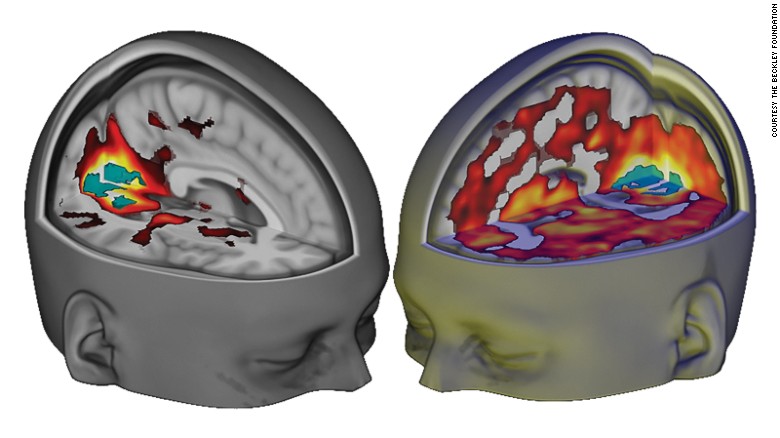Diane Rehm Show: Using Psychedelic Drugs To Treat PTSD And Other Mental Disorders
Here’s What LSD Does To the Brain
There's a reason it makes people feel more connected to the universe
The researchers asked the people to rate their mood changes—getting answers like “I’m tripping like crazy” or “nothing is happening”—their visual distortions and their intensity of ego dissolution: a loss of self-identity and sense of connection to the environment outside of oneself that reportedly happens to people when they take LSD, which is illegal in the United States. “You don’t recognize yourself as a separate being from the universe,” says study co-author Enzo Tagliazucchi, a neuroscientist at the Royal Netherlands Academy of Arts and Sciences in Amsterdam. “It feels, in a way, like transferring the consciousness from within your body to the outside world; the focus is in the objects that surround you rather than inside.” Tagliazucchi and the team wondered if they could find some changes in the brain related to this feeling of ego dissolution.
When they looked at the regions of the brain involved in introspection, or thinking about oneself, and sensory areas that perceive the outside world, they found that these networks were communicating more intensely than usual. “When we measured the brains of subjects who were really blown away by LSD, who had a really strong feeling of ego dissolution, they were also the ones who had the strongest increase in communication between the network of regions in charge of introspection and the network of regions in charge of perceiving the external world,” Tagliazucchi says.
In another neuroimaging study published earlier this week in the journalPNAS—conducted by many of the same authors, including Tagliazucchi—the researchers found that LSD changes visual information in the brain. While people are on acid, they start to see activity going on in the brain, which is normally suppressed from perception, Tagliazucchi explains. The ability to see this internal activity is likely responsible for hallucinations and visual distortions on LSD, he says.
Tagliazucchi acknowledges that more research is needed—not just to provide biological evidence for the reported experiences of people on acid, but to explore a potential therapeutic approach for people with anxiety or depression. Instead of taking a pill every day to change brain chemistry, he says, it’s possible that psychedelics could provide a few hours to break out of constricted thought patterns. “If you combine this with psychotherapy during that window, you have this chance to reflect on things that your depression normally wouldn’t allow you to focus on,” he says.
We’re a long way from acid-assisted therapy going mainstream; LSD research like the kind in London is only legal in a handful of places around the world, and the science is still in very early stages. “Now is the first time we have both fMRI machines and clearance to do experiments with LSD,” Tagliazucchi says.

No comments:
Post a Comment